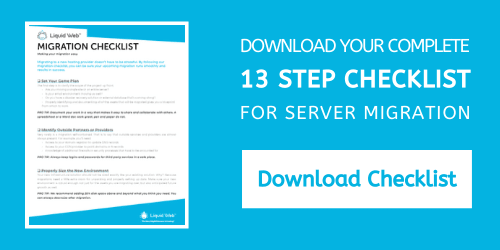
Eyeing migrating to cloud computing for your business and wondering what the trends around cloud services, platforms, and infrastructure are for 2021?
If you’ve been watching the IT Industry over the past few years, you’ve witnessed an unprecedented growth in public cloud services and cloud usage across all business sectors. With that, there are now lots of new market opportunities and challenges — all of which will have a significant effect on long-term strategies and roadmaps of nearly every company.
What can you expect to see from the most popular cloud computing trends in 2021? And how can you adjust your operations to benefit from them now?
Why Does Cloud Computing Keep Growing?
There is a large tectonic shift happening right now, in which companies continue to move workloads from their data centers into the cloud. CFOs and CIOs prefer the flexibility of monthly expenses to be matched with computing needs rather than approving large capital expenditures related to building their own data center space, which requires deploying network, security, computing, and storage equipment.
In addition, cloud service providers continue to make it easier for customers to work with cloud computing, especially companies that build mobile or web applications (e.g. video streaming, social media, games).
That said, here are the top five emerging trends we believe will have an outsized impact as cloud platforms keep on growing.
5 Cloud Computing Trends To Watch In 2021

1. Companies Will Continue to Invest Heavily in the Cloud
Even though most people think of cloud servers as something incompatible with on-premise solutions, the reality is much more subtle. Cloud computing is growing not only because companies want to move on from building and managing their own infrastructure but also because they can leverage the benefits of both environments when needed with a hybrid cloud approach using multiple cloud vendors at once.
According to Gartner, 75% of midsize and large organizations will adopt a multi-cloud or hybrid cloud strategy in 2021. The key is to find the right balance that maximizes the return on the investment you get from your on-premise setup and the value from your cloud integration.
For those who want to stay competitive by utilizing cutting-edge infrastructure, Managed Cloud Servers powered by OpenStack would offer scalable, pre-configured solutions with predictable pricing. Alternatively, a Managed Private Cloud powered by VMware combines the benefits of a traditional public cloud with the power, security, and performance of dedicated hardware.
2. Compliance Will Get More Complex
As server infrastructure for most companies gets more and more fragmented, with some computational power staying on premise and some being delegated to the cloud, regulatory compliance becomes much more challenging.
If your company falls under any specific industry regulation, such as HIPAA (Health Insurance Portability and Accountability Act), that covers the way you have to store and process personal information (which could be related to your customers or employees), compliance is not going to be easy, especially when you are managing multiple servers in multiple environments.
An excellent way to minimize liability is to switch to HIPAA Compliant Hosting completely, which will ensure that, whether you have multiple VPSs (virtual private servers) or dedicated servers, or a combination of the two, you will remain compliant with all the guidelines.
As an overall compliance trend, it is clear that, going forward, companies would need to hire or contract server infrastructure consultants more frequently, and continue to shift away from DIY hosting to fully managed solutions.
3. Cloud Competition Will Affect Costs
Everyone, from local hosting companies to the largest tech giants, is competing for the same pool of cloud customers, which will eventually drive the costs down.
As pay-per-use cloud services are becoming more popular, more companies are trying to reduce costs by devising infrastructure plans that would require less computational time. In fact, some even employ artificial intelligence and machine learning to ensure that they get the best of what cloud infrastructure has to offer while keeping the cloud service costs manageable.
The flip side of relying solely on pay-per-use providers is that unpredictable spikes in traffic could result in large unforeseen expenditures. Utilizing Managed Cloud Servers instead could give you peace of mind with clear pricing based exactly on the amount of server power your business needs.
4. IT Operations Will Keep Getting Delegated
As cloud costs are largely variable and represent quite a low barrier to entry, companies will continue to outsource their cloud infrastructure and management needs to third-party hosting providers.
Starting a software business has never been easier. No longer do you need to invest tens or even hundreds of thousands of dollars into on-premise servers and your own DevOps team. Today, any bootstrapped startup can have plenty of computing power for just a few hundred dollars and scale it as they grow.
The same principle applies to more mature companies as well. At some point, the complexity of managing your own infrastructure can start to affect your bottom line, and delegating some of your IT operations will seem like a pragmatic solution.
While the IT (and especially DevOps) outsourcing trend is not surprising, it does make the managed hosting marketplace more and more crowded each year, which in turn means that it’s more important than ever for companies to properly screen their cloud vendor of choice.
5. Security Needs Will Grow
Unfortunately, every rapidly growing industry attracts not only enthusiastic entrepreneurs (whether startups or hosting providers) but also hackers and other malicious players, whose goal is to detect and take advantage of any security holes or fragile server setups that would be unable to defend against DDoS attacks.
Hence, another outcome of the cloud infrastructure complexity (besides compliance issues) is the need to keep the highest level of security across all company servers, whether they are based in-house or constitute a part of a DIY hosting setup.
It is likely that security as a trend will also contribute to the proliferation of cloud hosting providers that would be able to specialize and offer end-to-end security solutions for any cloud platform at any scale.
Moving Your Infrastructure to the Cloud
Are you thinking of moving your server infrastructure to the cloud but not sure how you can best take advantage of the latest innovations in cloud computing? Or what are the differences between VPS, Dedicated Cloud Servers, and VMware Private Cloud Hosting?
Contact Liquid Web, and our technical specialists will be delighted to answer any of your questions, help you assess your server needs, and evaluate your performance right now. Liquid Web can help you come up with a step-by-step plan on making your particular server setup more effective in the future, whether it’s expanding to Cloud Servers or moving to something like a VMware Private Cloud.
Need Help Migrating to the Cloud? Download our 13-Step Migration Checklist.
[ad_2]
Source link







